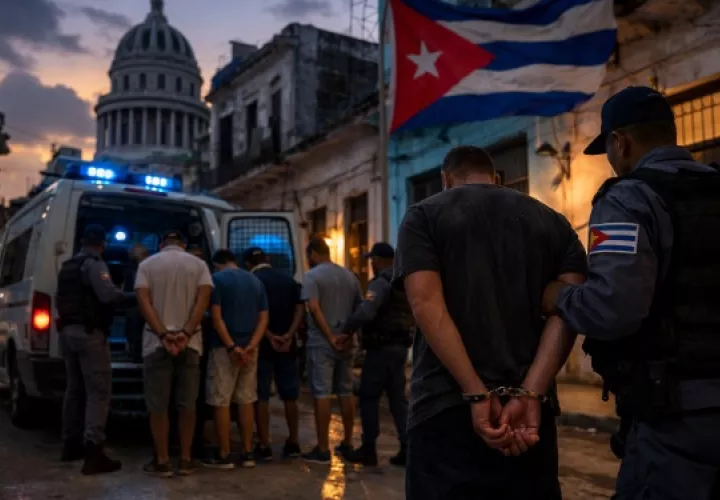WORLD VIEW: Qatars slavery system

Qatar’s mistreatment and exploitation of low-paid migrant workers, particularly those building the Al Khalifa World Cup stadium, comes at a cost not only to the migrants who live in slave-like conditions, but also to the reputation of the foreign companies doing business in the Gulf State.
By Sharan Burrow
THE COST of doing business in the state of Qatar essentially means denying the fundamental rights and freedoms of nearly two million migrant workers.
For companies, the cost is a corrupt business model.
When a company profits from slave labor under the kafala system, it essentially accepts the debasing of humanity.
The kafala system is a management system which controls migrant workers. It effectively renders laborers in the Gulf States the property of another human being: their employer.
No CEO would preside over a business model that enslaved their own children. But by doing business in Qatar, these CEOs are accepting the kafala system, which stands in opposition to the rights and freedoms granted in the democratic nations of their company headquarters.
Every CEO operating in Qatar is aware that their profits are driven by low wage levels – wages that are based on a racially-discriminatory system – and that these profits risk workers’ safety, resulting in indefensible workplace injuries, illness and death.
The ITUC estimates that 7,000 workers could die before the first ball is kicked at the 2022 World Cup in Qatar and that wages, when they are paid, for some South Asian workers amount to $247 a month.
When total working hours are calculated, a construction worker on the “showcase” Al Khalifa World Cup stadium earns $1.50 an hour.
Construction companies which take responsibility to provide their workers with clean accommodations and fresh food in other countries where they operate, fail to do so in Qatar.
Hotel chains which, in other countries, are required by law to guarantee minimum hours between shifts and increased rates for overtime, often fail to do so in Qatar.
Retail chains that abide by laws in other countries to pay workers on time, and to pay workers the salary they were promised, often fail to do so in Qatar.
Western Universities, whose intellectual freedom is the cornerstone of their value as academic institutions, fail to address slavery on campuses in Qatar.
And in the UAE, students, academics and artists watch as the institutions they value, including New York University and the Guggenheim Museum, silently set aside concern for human rights in the pursuit of the wealth of the Governments of the Gulf States.
But they refuse to accept that the current management of these great institutions can toss aside the history of the struggles for democratic freedom, anti-discrimination and labor rights, and instead operate in slave states like the United Arab Emirates (UAE) and Qatar.
Likewise, when the richest nation in the world – Qatar – enslaves migrant workers while developing their nation’s infrastructure in order to host the 2022 World Cup, football fans, construction workers, expats and activists have sounded their outrage.
While Qatari and joint-venture partners expect to make a $15-billion profit on World Cup infrastructure, migrant workers have been forced to pay illegal fees to recruitment agents in order to secure work, often being forced to pay for their own transportation to Qatar where they are then exploited and abused.
They find themselves living in squalid compounds, working long hours, sometimes seven days a week for very low wages and often in intolerable heat. There is no freedom of association and trade unions are banned.
There is no effective rule of law and companies respond to protests or strikes with firing or deportation. There are no labour rights in Qatar that equate to the international rule of law. Each year, the Indian government receives nearly 4,000 complaints from distressed Indian workers in Qatar, desperate for justice.
Migrant workers are still totally dependent on an employer for a contract, residency permit, accommodation, food (in the overwhelming majority of camps), fair wages and regular payment of wages, being allowed a home leave, working conditions, safety and health, along with an exit visa.
There is no individual freedom and more than a million workers still live in squalid conditions with poor-quality food, limited water supply and long hours. There is no universal minimum wage or a guarantee of skilled-worker wages.
Collective action by workers is punished most often with detention and deportation. Despite promises for reform in Qatar, new labour laws due at the end of the year, merely codify slavery.
The Gulf States, some of the richest countries in the world, choose to develop their futures by exploiting migrant workers.
They can make another choice though – the choice to ensure fair recruitment, to apply a minimum living wage for all workers, to allow freedom of association and promote collective bargaining for skilled workers. They can put an effective rule of law in place.
They can choose to treat migrant workers as human beings.





